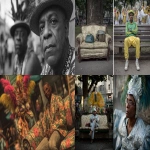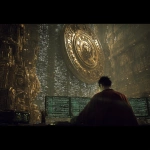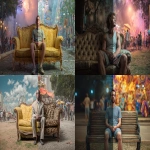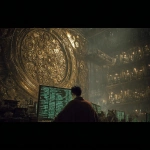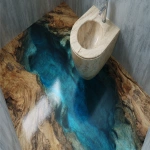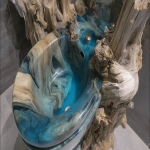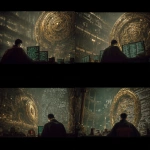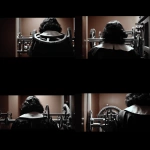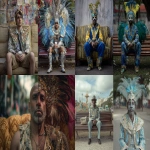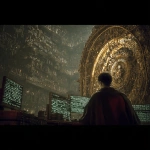Explore the Best AI Image Gallery

AI Lens: Transforming Product Photography with Artificial Intelligence
The world of product photography is undergoing a seismic shift, driven by the rapid advancements in artificial intelligence (AI). This transformative technology is revolutionizing how products are presented, marketed, and perceived, offering both exciting opportunities and complex challenges for the creative industry.
Revolutionizing the Creative Process
AI-powered tools are automating many aspects of product photography, from image capture to post-processing. Automated studio setups can adjust lighting and composition based on pre-set parameters, while AI algorithms can remove backgrounds, enhance details, and even create variations of an image with different styles or perspectives. This automation frees up photographers to focus on more creative aspects, such as conceptualizing shoots and collaborating with clients.
Expanding Creative Possibilities
AI is not just about efficiency; its also pushing the boundaries of creativity. Generative AI models can create entirely new product images from scratch, based on textual descriptions or existing visuals. This opens up a world of possibilities for designers and marketers to experiment with different concepts and aesthetics, bringing imaginative ideas to life in a way that was previously unimaginable.
Applications Across Industries
The impact of AI in product photography extends across diverse industries:
- E-commerce: AI-generated images can be used to create compelling product catalogs, personalize shopping experiences, and reduce reliance on expensive professional photography.
- Fashion: Designers can leverage AI to visualize their collections in different settings or with various models, streamlining the design process and enhancing virtual fashion shows.
- Real Estate: AI-powered tools can automatically generate high-quality images of properties, saving time and resources for real estate agents.
- Food & Beverage: Restaurants and food brands can use AI to create mouthwatering images that showcase their dishes and attract customers.
Ethical Considerations
While the potential benefits of AI in product photography are immense, its crucial to address the ethical implications:
- Authenticity and Transparency: Consumers should be informed when images have been created or manipulated using AI. Transparency is essential to build trust and avoid misleading representations.
- Bias and Representation: AI algorithms are trained on existing data, which can perpetuate biases and stereotypes. Its important to ensure that AI-generated imagery is inclusive and representative of diverse populations.
- Job displacement: The automation capabilities of AI may raise concerns about job losses in the photography industry. Its crucial to consider the impact on human workers and explore ways to reskill and upskill individuals for new roles in the evolving creative landscape.
Future Trends
The future of AI in product photography is brimming with possibilities:
- Hyper-personalization: AI will enable the creation of highly personalized product images tailored to individual customer preferences and demographics.
- Immersive Experiences: AI-powered virtual reality (VR) and augmented reality (AR) will allow consumers to interact with products in immersive 3D environments, enhancing their shopping experience.
- Sustainability: AI can help reduce the environmental impact of product photography by minimizing resource consumption and waste generation.
AI is poised to revolutionize product photography, empowering creativity, streamlining workflows, and creating new possibilities for brands and consumers alike. As this technology continues to evolve, its crucial to navigate its ethical implications responsibly and ensure that AI serves as a tool to enhance human ingenuity and create a more inclusive and sustainable creative industry.





](https://images.ai-img.art/thumbnails/150/8fd5788e152269ccc7eeb4a5287499cc5f55ca46d75afc237030f50a1b60c6ca.webp)
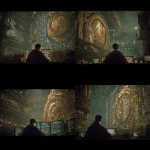
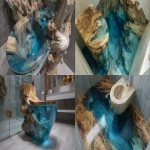
](https://images.ai-img.art/thumbnails/150/24ccaad8968bce75611aa4ff739695d61b7d06bd128d44cfbb3a6c46be30ed33.webp)
](https://images.ai-img.art/thumbnails/150/786d3898a4574da9c53e922bd2a30035084a90a9a6f5cc6bee514d0150ba3403.webp)

](https://images.ai-img.art/thumbnails/150/0d2c5ff24ca9024b95b5f0d1d0e673146e5dd5f31c7b3a7092322afe4a3c46eb.webp)






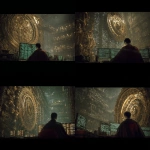
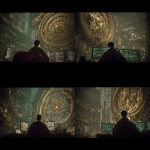
](https://images.ai-img.art/thumbnails/150/7889b264cc5c27f6b7a00af1767a689c9df2b49d36667764d8322ae0c0fed64a.webp)

](https://images.ai-img.art/thumbnails/150/69daab74527edc292198788487e2d0d5f1bb1aba897d85b79ff4015ea305631d.webp)
